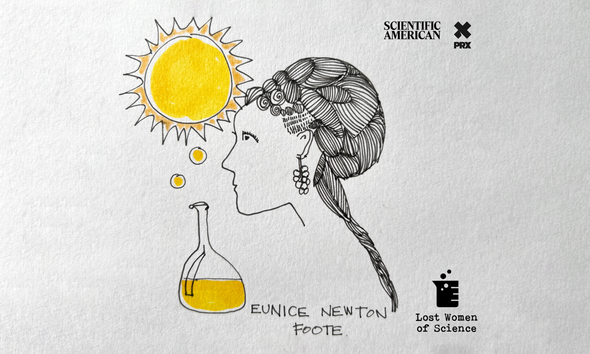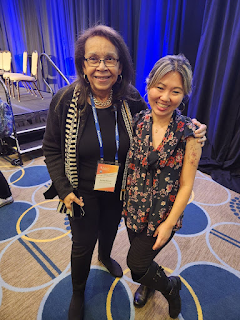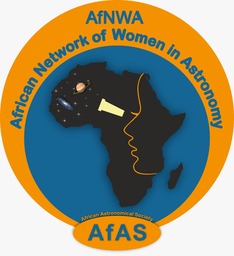The Central American - Caribbean Bridge in Astrophysics (Cenca Bridge) is a nonprofit organization established in the state of Tennessee in the United States with the mission to create and develop astronomy research opportunities in Central America and the Caribbean. Opportunities to pursue astrophysics in the region are few with only a handful of programs offering master’s in physics with a concentration in astronomy. Cenca Bridge connects undergraduates from Central America and the Caribbean to mentors and advisors overseas in hope that they have the choice to pursue astrophysics as a profession. Every year, Cenca Bridge holds the remote internship program, where undergraduate students from the region apply to be selected for a 3-month long paid research internship. As the only organization to provide a paid research remote internship, it is important to highlight the contributions that many women in astrophysics from Central America and the Caribbean have already contributed to our field. In this series, we will highlight selected fellows. If you'd like to learn more about the program and ways you can get involved please visit https://cencabridgeastro.weebly.com/.
 |
| iPoster at 241st AAS meeting (Seattle, WA) |
My name is Kaylan-Marie Achong and I grew up in Chaguanas, Trinidad and Tobago. The expansive history and culture of my twin- island state has deeply influenced my outlook on life, and has greatly influenced my love for Astronomy. I am a recent graduate from the University of the West Indies, St. Augustine Campus with a BSc in Physics & Mathematics. Astronomy is not a popular field in my country; very few students have chosen to pursue this field. Nevertheless, I have pushed forward, forever thankful for every opportunity I have had to develop my career in Astronomy.
Furthermore, I have a deep love for my country’s history and an immense appreciation for the struggles of the women from my country that came before me. I really enjoy learning, and I truly believe that you should never stop questioning the world around you. I also really enjoy art and I think that we should always remember to have a life outside of our daily 9-5.
How did you first become interested in astronomy or planetary science ?
Behind my house, there is a large expanse of ‘bush’ referred to as the rice paddy fields. These were fields that my ancestors would have toiled over to make their living. There are no street lights, and you can really sit and gaze at the night sky perfectly. Although I was not lucky enough to own a telescope growing up, I was still able to watch Orion traverse my half of the hemisphere every year. I saw Venus, Mars and other celestial bodies move in and out of view in my portion of the night sky. I think it is this wonder that drew me to astronomy. I would look up at the sky, marvel at the constellations, and think to myself, “These are the very same stars my foremothers would have stood and watched after a long day of laborious work. Here I am, in the comfort of my back yard- with my luxuries of being literate, gazing at the very same constellations years after them.”
What are your aspirations?
I really love astrobiology. I based my final year project on the field, and worked very hard to achieve the Physics Head of Department award for my finished work as well as to graduate with first class honors. As such, I really want to produce useful research in the field. I think that all aspects of the search for alien life is exhilarating, and a lot can be learnt about humanity from searching for early life forms.
What are you currently working on ?
Right now I am in the process of applying for graduate school 😀 Very daunting task! Wish me luck! Also, I was currently working on developing a catalog of triple component bent jet active galactic nuclei (AGN) sources with my mentors from my REU with NRAO. This project involved visual analysis of over 2000 sources to qualitatively determine their degree of bending, as well as to remove artifacts from the sample. I developed a program to measure their bending angle and was working on further categorizing them. However, as I am applying to graduate school I have taken a small pause from research.
 |
| Fort Milfort, Tobago |
What else is important to you and how do you make time for it?
I enjoy tending to my garden, and reading. I love being in nature and often take time to enjoy the many beautiful places my country has to visit. I truly believe that a balance is necessary for a good quality of life. My rule is that the weekends belong to me, and I try to spend the time not worrying about work- this is often hard to do.
What community issues are important to you and why?
I feel very deeply for the inclusion of Women in STEM. Coming from a country that is largely patriarchal, I have seen so many women run themselves dry trying to play the role of good wife, good mother, and business woman with little to no help from their spouses. I have also watched as brilliant women fight tooth and nail for jobs that are easily handed out to their male counterparts. Furthermore, growing up I was often told that my main purpose in life would be to serve my husband. In fact, a lot of my family were shocked at my defiance to focus on a career over ‘settling down’. They referred to me as a ‘career woman’- as if it was a bad thing. I resented this archaic mindset and worked very hard at school to ensure I would be able to pave my own path. As a result, I am actively involved in a local charity focused on highlighting the inclusion of women in STEM. Furthermore, I am a strong feminist, and I believe that women deserve the opportunity to choose what they want for their life, whether it is to focus on a career, be a homemaker or even both- if they desire, without the choice being forced on them.
What are your near-future plans?
Right now, I hope to attend graduate school to obtain a PhD in Astronomy, with a specialization in Astrobiology. I am really excited about this multidisciplinary field, and I cannot wait to get involved in research focusing on it. As a result, I hope to stay in academia as a researcher.










